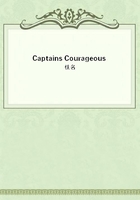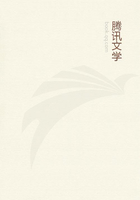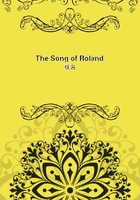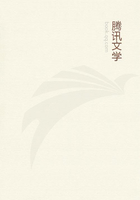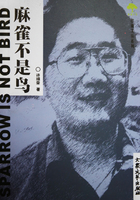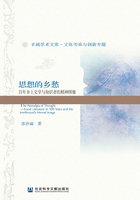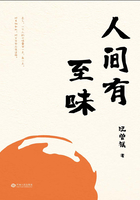Men. Yes, I should; and I believe that I understand your meaning.
Soc. And you would speak of a surface and also of a solid, as for example in geometry.
Men. Yes.
Soc. Well then, you are now in a condition to understand my definition of figure. I define figure to be that in which the solid ends; or, more concisely, the limit of solid.
Men. And now, Socrates, what is colour?
Soc. You are outrageous, Meno, in thus plaguing a poor old man to give you an answer, when you will not take the trouble of remembering what is Gorgias' definition of virtue.
Men. When you have told me what I ask, I will tell you, Socrates.
Soc. A man who was blindfolded has only to hear you talking, and he would know that you are a fair creature and have still many lovers.
Men. Why do you think so?
Soc. Why, because you always speak in imperatives: like all beauties when they are in their prime, you are tyrannical; and also, as Isuspect, you have found out that I have weakness for the fair, and therefore to humour you I must answer.
Men. Please do.
Soc. Would you like me to answer you after the manner of Gorgias, which is familiar to you?
Men. I should like nothing better.
Soc. Do not he and you and Empedocles say that there are certain effluences of existence?
Men. Certainly.
Soc. And passages into which and through which the effluences pass?
Men. Exactly.
Soc. And some of the effluences fit into the passages, and some of them are too small or too large?
Men. True.
Soc. And there is such a thing as sight?
Men. Yes.
Soc. And now, as Pindar says, "read my meaning" colour is an effluence of form, commensurate with sight, and palpable to sense.
Men. That, Socrates, appears to me to be an admirable answer.
Soc. Why, yes, because it happens to be one which you have been in the habit of hearing: and your wit will have discovered, I suspect, that you may explain in the same way the nature of sound and smell, and of many other similar phenomena.
Men. Quite true.
Soc. The answer, Meno, was in the orthodox solemn vein, and therefore was more acceptable to you than the other answer about figure.
Men. Yes.
Soc. And yet, O son of Alexidemus, I cannot help thinking that the other was the better; and I am sure that you would be of the same opinion, if you would only stay and be initiated, and were not compelled, as you said yesterday, to go away before the mysteries.
Men. But I will stay, Socrates, if you will give me many such answers.
Soc. Well then, for my own sake as well as for yours, I will do my very best; but I am afraid that I shall not be able to give you very many as good: and now, in your turn, you are to fulfil your promise, and tell me what virtue is in the universal; and do not make a singular into a plural, as the facetious say of those who break a thing, but deliver virtue to me whole and sound, and not broken into a number of pieces: I have given you the pattern.
Men. Well then, Socrates, virtue, as I take it, is when he, who desires the honourable, is able to provide it for himself; so the poet says, and I say too-Virtue is the desire of things honourable and the power of attaining them.
Soc. And does he who desires the honourable also desire the good?
Men. Certainly.
Soc. Then are there some who desire the evil and others who desire the good? Do not all men, my dear sir, desire good?
Men. I think not.
Soc. There are some who desire evil?
Men. Yes.
Soc. Do you mean that they think the evils which they desire, to be good; or do they know that they are evil and yet desire them?
Men. Both, I think.
Soc. And do you really imagine, Meno, that a man knows evils to be evils and desires them notwithstanding?
Men. Certainly I do.
Soc. And desire is of possession?
Men. Yes, of possession.
Soc. And does he think that the evils will do good to him who possesses them, or does he know that they will do him harm?
Men. There are some who think that the evils will do them good, and others who know that they will do them harm.
Soc. And, in your opinion, do those who think that they will do them good know that they are evils?
Men. Certainly not.
Soc. Is it not obvious that those who are ignorant of their nature do not desire them; but they desire what they suppose to be goods although they are really evils; and if they are mistaken and suppose the evils to be good they really desire goods?
Men. Yes, in that case.
Soc. Well, and do those who, as you say, desire evils, and think that evils are hurtful to the possessor of them, know that they will be hurt by them?
Men. They must know it.
Soc. And must they not suppose that those who are hurt are miserable in proportion to the hurt which is inflicted upon them?
Men. How can it be otherwise?
Soc. But are not the miserable ill-fated?
Men. Yes, indeed.
Soc. And does any one desire to be miserable and ill-fated?
Men. I should say not, Socrates.
Soc. But if there is no one who desires to be miserable, there is no one, Meno, who desires evil; for what is misery but the desire and possession of evil?
Men. That appears to be the truth, Socrates, and I admit that nobody desires evil.
Soc. And yet, were you not saying just now that virtue is the desire and power of attaining good?
Men. Yes, I did say so.
Soc. But if this be affirmed, then the desire of good is common to all, and one man is no better than another in that respect?
Men. True.
Soc. And if one man is not better than another in desiring good, he must be better in the power of attaining it?
Men. Exactly.
Soc. Then, according to your definition, virtue would appear to be the power of attaining good?
Men. I entirely approve, Socrates, of the manner in which you now view this matter.
Soc. Then let us see whether what you say is true from another point of view; for very likely you may be right:-You affirm virtue to be the power of attaining goods?
Men. Yes.
Soc. And the goods which mean are such as health and wealth and the possession of gold and silver, and having office and honour in the state-those are what you would call goods?
Men. Yes, I should include all those.

